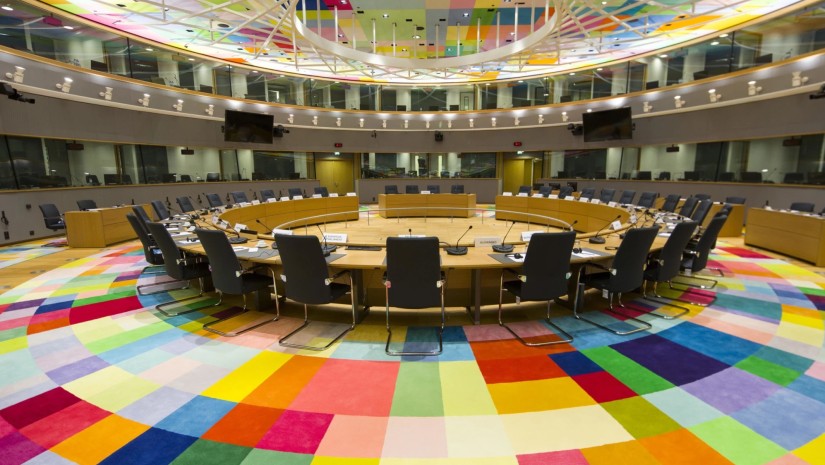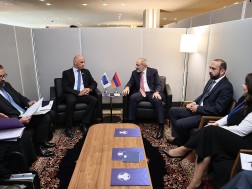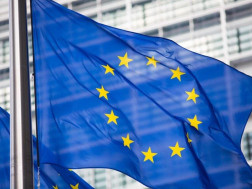The Council of the European Union publishes a conclusion on the enlargement of the European Union
The Council takes good note of the Communication from the Commission of 8 November 2023 on the EU Enlargement Policy including the reports on Montenegro, Serbia, North Macedonia, Albania, Bosnia and Herzegovina, Kosovo, Türkiye, Ukraine, the Republic of Moldova, and Georgia, reads the conclusion of the Council of the European Union on the EU enlargement.
The Council reaffirms its commitment to enlargement in line with the renewed consensus on enlargement approved by the European Council in December 2006 and subsequent Council and European Council conclusions.
The Council takes note of the Commission’s report of 8 November 2023 on Georgia and its recommendation, and looks forward to the forthcoming discussion of the European Council on this matter.
The Council also calls on Georgia to demonstrate a clear commitment to EU values, continue to progress on the reform agenda and fulfil the conditions specified by the Commission inclusively, meaningfully and irreversibly, in order to further advance towards future EU membership.
"The Council takes good note of the genuine aspirations of the overwhelming majority of Georgian people towards EU membership. The Council welcomes the overall good legislative framework, institutional setup and vibrant civil society, including watchdog organisations, and recalls that these elements provide Georgia with a sound basis to advance democratic and rule of law reforms.
With regard to some of the fundamentals for enlargement, the Council acknowledges in particular the overall progress on public administration reform, public procurement and economic reforms. The Council welcomes the overall preparation of Georgia to assume the obligations of membership, encourages a sustained level of alignment with EU acquis and standards, further deepening the sectoral cooperation with EU, on the basis of enhanced implementation of the EUGeorgia Association Agreement including the Deep and Comprehensive Free Trade Area. It also encourages Georgia to continue fulfilling the visa liberalisation benchmarks.
The Council calls on all political actors in Georgia to demonstrate constructive cooperation and dialogue, overcome polarisation and refrain from actions that could further deepen the political tensions and hamper the country’s democratic institutions and reform agenda. In addition, the Council recalls that Georgia has committed to guarantee that civil society is able to operate freely and participate actively, inclusively and meaningfully in the policymaking process. This would ensure a more effective and sustainable reform progress in fundamental areas, in particular the rule of law and fundamental rights.
The Council also underlines the importance of fighting disinformation and foreign information manipulation and interference against the EU and its values and calls on Georgia to take meaningful steps towards this end.
The Council reiterates that the proper functioning of democratic institutions, and reforms related to justice and the rule of law, should remain a priority for the country. The Council emphasises that the full independence, accountability and impartiality of all State institutions and in particular judicial, prosecutorial and monetary institutions, need to be further strengthened and ensured, in line with European standards and the recommendations of the Venice Commission. The Council emphasises the importance of developing a strong track record of investigating corruption and organised crime cases and implementing deoligarchisation actions through a systemic approach.
With reference to electoral reform, the Council recalls that a solid framework in line with European and international standards remains vital for strengthening democracy. The Council calls on Georgia to ensure a free, fair and competitive electoral process, notably in 2024 and to fully implement the recommendations made by OSCE/ODIHR and the Council of Europe/Venice Commission from past elections.
The Council reiterates that Georgia needs to enable the full respect for fundamental rights, including freedom and pluralism of the media, the right to freedom of opinion, assembly and expression and protection of LGBTI persons from intimidation as well as violence and discrimination.
The Council reaffirms the EU’s support to Georgia’s sovereignty, independence and territorial integrity within its internationally recognised borders and underlines that the EU remains firmly committed to peaceful conflict resolution and its policy of non-recognition and engagement, including through the presence of the EU Monitoring Mission in Georgia.
The Council underlines its strong expectation for Georgia to substantially increase its alignment with the EU Common Foreign and Security Policy positions and restrictive measures, including in line with the principles of sovereignty and territorial integrity. It also calls on Georgia to reverse the negative trend as a matter of priority and progress towards full alignment. This would be a clear sign of the strategic choice of the country for EU membership. The Council encourages Georgia to continue the good cooperation with the EU on preventing the circumvention of EU restrictive measures, including those against Russia and Belarus," reads the conclusion.
















